Alumni College 2024
Elections, Politics, and (Dis)Information (June 5–6, 2024*)
2024 is a pivotal election year in the United States—a long process that will dominate the media and have profound implications for the future of the country. Politics in recent decades has broken all the rules and normalized the unprecedented.
Reedies all over the country are making the world a better place by pushing for the changes we need by holding elected office, improving government from within, pursuing integrity of data and media, and defending democracy itself by ensuring fair elections. We will learn from Reedies at the front lines in this evolving landscape of elections and political processes in the age of information overload and mis/disinformation.
*additional Alumni College-related events take place June 7 & 8 during Reunions
Register for Alumni College
Schedule
The schedule is subject to change.
Wednesday, June 5
Participatory Budgeting
10–11:15am
Jim Labbe ’95 (he/him) currently serves as a Director and Board President with Participatory Budgeting Oregon. Jim was born and grew up in Portland, Oregon where he developed a life-long passion for activating municipal and regional democracy for people and the planet. He got his start serving on the Multnomah Youth Commission in 1985. After graduating from Reed, he has worked for the Applegate Partnership, Audubon Society of Portland, and Depave doing community-based organizing and advocacy around natural resource conservation. In 2018 he co-founded Participatory Budgeting Oregon which works for more participatory and just public budgeting for all Oregonians by centering the expertise and leadership of underrepresented communities. Jim also has research interests and publications that span history, regional equity, urban forestry, and watershed science and management. Jim currently lives in North Portland with his life partner and daughter.
Housing Policy on the Ballot
11:30am–12:45pm
Christine Lewis ’07 (she/her/hers) represents the communities of District 2 on Metro Council, including Oregon City, Gladstone, Milwaukie, Happy Valley, West Linn, Lake Oswego, Rivergrove, Johnson City, Southwest Portland, and unincorporated Clackamas and Multnomah Counties. Currently in her second term, her responsibilities and committee assignments span from housing and transportation to parks and nature, solid waste, and regional cultural venues.
A Field Guide to Spotting a Gerrymander
2–3:15pm
This class will discuss social scientific methods to identify partisan and racial gerrymandered district plans in Ohio and Alabama. We will also explore what can be done to replace gerrymandered maps with ones that allow for the free exercise of the vote in these states.
Peter Miller ’06 is a Senior Research Fellow at the Brennan Center for Justice at New York University focusing on redistricting, voting, and elections. His research interests include U.S. and comparative politics, voting behavior, political institutions, and public opinion. One of Miller’s articles on redistricting commissions was cited by the U.S. Supreme Court in Arizona State Legislature v. Arizona Independent Redistricting Commission. He is a frequent commentator on topics related to redistricting reform, voting rights, and elections.
Miller was a Fulbright Scholar at the University of Tampere, in Finland, during the 2016–17 academic year. He was previously a Podlich Fellow at the Center for the Study of Democracy at UC Irvine and a Templeton Foundation Fellow in the Philosophy, Politics, and Economics Program at the University of Pennsylvania. He holds a doctorate and a master’s degree in political science from the University of California, Irvine, and a bachelor’s degree in political science from Reed College.
Portland Votes 2024: Shifting to Ranked-Choice Voting
3:30–4:45pm
Get ready to rank your vote, Portland! This November will be the first time Portlanders vote in their districts and use ranked-choice voting to elect three council representatives, a mayor, and an auditor. Learn more about how single winner and multiple winner ranked-choice voting works and how the City of Portland is preparing for this change.
Francisca Garfia ’17 started her career with the City of Portland, supporting the Portland Building Reconstruction project and other citywide initiatives in the Office of Management and Finance. She then led communications efforts on the Oregon Worker Relief Fund and other immigrants’ rights measures before moving to Family Forward. At Family Forward, she supported measures and bilingual campaigns that centered mothers, parents, and caregivers.
After Portlanders approved Measure 26-228, which changed the City of Portland’s form of government, directed the City to establish voting districts, and implement ranked-choice voting, she returned to the City as part of the transition team. She creates and translates communications and engagement materials to ensure Portlanders can understand the upcoming changes and are prepared to cast their ballots on Nov. 5, 2024.
Did Trump Break NPR? Live Podcast and Discussion
7–9pm
In this special Reed Alumni College popup podcast, former journalist and political consultant Sandeep Kaushik ’89 interviews former public radio producer Susie Davis ’88 (who has worked as an editor and producer at Marketplace, NPR, North Carolina Public Radio, Minnesota Public Radio, and KQED in San Francisco) and former politics reporter David Hyde ’88 (who spent 15 years at a public radio station in Seattle) about the crisis at NPR. In April of this year, NPR editor Uri Berliner authored a controversial piece that accused the network of being too woke, too progressive, and too partisan. Berliner claims NPR has been bleeding listeners as a result. Is he right?
Susie Davis ’88 spent 30 years in public radio and podcasting, editing and producing for Marketplace and NPR (ask her about 9/11) and Senior Producing shows for North Carolina Public Radio, Minnesota Public Radio and KQED in San Francisco. In 2017 she was a cultural diplomat for the United States Department of State, teaching narrative storytelling and podcasting basics to journalists in 8 countries. She's the author of a collection of poems called Gathering Sound, the co-editor of an anthology about working mothers and a contributor to books about female beauty and blended families. She's been a columnist for the News & Observer Newspaper in Raleigh, NC, and a visiting professor at Duke, UNC Chapel Hill, NCCU (an HBCU in Durham, NC) and Wake Forest University. Ms. Davis was born and raised in the city of Detroit, graduated from Reed in 1988, and got her MFA in Poetry from the Writing Programs at the University of Houston in 1995. Currently she is the Advisor/Director to WASU FM, the student-run radio station at Appalachian State University in Boone, North Carolina. She lives in the woods with a rescue mutt named Willow and spends her free time hiking with her son near Asheville where he goes to school or Facetiming with her daughter in New York City.
David Hyde ’88 created and hosts the Seattle Nice podcast, which aims to bridge the political divides within one blue city. Each podcast brings the progressive left together with the center and center left to debate the thorniest issues in Seattle politics. For nearly two decades, David worked for NPR-affiliate KUOW in Seattle, most recently as a Murrow-award winning politics reporter. He departed in April of this year to dedicate himself full time to podcasting. Previously, David hosted talk show interviews and also worked as a supervising talk show producer. David's education includes a BA in History from Reed College, and reaching the PhD ABD stage in U.S. History at Rutgers University before dropping out.
Sandeep Kaushik ’89 (moderator) has broad experience in political and public affairs consulting work in Seattle at Sound View Strategies. In addition to his extensive public relations, political communications and strategic advisory work for elected officials and civic leaders, governments and nonprofits, he has worked on multiple political campaigns in the Northwest, including numerous issue and ballot measure campaigns. Sandeep’s current practice includes dealing with complicated, high profile policy issues in Seattle, including affordable housing, issues around ridesharing services, short-term rental regulation, transit funding and universal pre-K. (see more bio below)
Thursday, June 6
This is Not Propaganda: Psychology of Disinformation and Propaganda Campaigns
10–11:15am
As billions of people participate in elections across the world in 2024, broadcast and digital media are a source of information and disinformation for every voter. In this interactive lecture, we will dive into how your cognition makes you vulnerable to disinformation campaigns and what can be done to inoculate ourselves and un-disinform others. The lecture will spotlight the incredible proliferation of Russian propaganda in the U.S., and the threats it poses to our democracy. Although there are no silver bullets, we'll work on research-informed strategies for reducing disinformation and polarization in political discourse. We will also have a bit of fun with some cognitive experiments!
Vasiliy Safin ’07 is a Visiting Assistant Professor of Psychology at Reed College, a cognitive scientist with training and research interests extending to behavioral economics and social psychology. His senior thesis at Reed explored questions of self-control and persistence of behavior. During his doctoral program he continued to study self-control, but the scope was broadened to decisions that affected others: altruism, social cooperation, social discounting, game theory, tragedy of the commons, etc. At Reed in the 2023-2024 academic year he has been working with students interested in exploring the judgment and decision-making processes that take place when we evaluate prosocial and antisocial choices. He has recently taken an interest in the psychological examination of propaganda, and is working with students on identifying and examining propaganda and/or disinformation social media campaigns (especially the massive harmful campaigns conducted by Russia) through the lens of cognitive and social psychology.
Impacts of AI on Elections and Political Discourse
11:30am–12:45pm
In this class we will explore developments in Artificial Intelligence over the past few years and examine how they are shaping the way various forms of media are being used to position messages, shape opinion, and undermine traditional election mechanisms. This class will help the audience understand the trajectory of AI technology along with its risks and opportunities. Participants will gain a better understanding of the near term challenges we’ll face and emerging solutions and strategies that will help to reign in the risks. We will have some hands-on demonstrations of AI to showcase how existing technology is already shifting the way that political operators engage with the public.
Daniel Beveridge ’92 is a Distinguished Engineer in VMware’s Research Group, focused on AI innovation and related technology driving disruptive innovation across key investment areas. He has developed a range of new technology over his 14 years at VMware (now part of Broadcom) and received over 50 patents on software design inventions related to software infrastructure. His insights draw from 30+ years in IT covering consulting, software architecture, and IT management.
Party, Campaign Messages, and Elections - Professor Dan Qi
2–3:15pm
Professor Dan Qi is a Visiting Assistant Professor of Political Science at Reed College. She got her Ph.D. in the Department of Political Science at Louisiana State University in August 2022. Her main research area is race-ethnicity and identity politics, especially in Asian American Politics and immigration. She also has ongoing research in gender politics, news media and government, political behavior, public opinion, and political economy. At the 2021 APSA conference, she presented a paper entitled “American Attitudes Towards Asians in the Trump Covid Era.” Her dissertation is “Nationalism, Perceptions of Immigrant Threat, and Attitudes Towards Immigrants in Developed Countries.”
Don't Let the Nazis In!—White Extremist Entryism in U.S. Politics
3:30–4:45pm
This class focuses on the ways in which White extremists, including neo-Nazis, continue to influence mainstream political discourse. Namely, this revolves around their efforts to co-opt popular conversations, leveraging concerns over Palestine, Ukraine, and domestic racial politics to spread their agenda and expand their support. We will discuss ways to identify these efforts, as well as develop an understanding of the genocidal underpinnings that are intertwined with these extremist movements.
Sean Long ’12 is a Postdoctoral Associate at George Washington University. His research explores the relationship between White extremist activity and broader dynamics with American politics, involving a great deal of experience reading extremist content and directly interacting anonymously with extremists. He received his PhD in Political Science from the University of California, Riverside, as well as an MA in American Government from Georgetown University and a BA in Philosophy from Reed College. While at Reed he focused on studying Ludwig Wittgenstein and theories of mysticism, which he greatly prefers to the study of White extremists.
Premiere of New Yes Men Documentary and Barbie Liberation Organization Short Films
7–9pm, Reed Chapel
This event is open to all Reunions attendees.
Igor Vamos ’90 is a media artist and Professor and Graduate Program Director at Rensselaer Polytechnic Institute (RPI). While at Reed, Vamos organized a student group called Guerrilla Theater of the Absurd, which performed and documented "culture jamming" acts of protest. Vamos is also known as “Mike Bonanno,” in his work with The Yes Men, the performance-activist duo that impersonates captains of industry and surprise unsuspecting business audiences with satirical, poignant actions that comment upon pressing social and environmental issues.
Friday, June 7
Reedie Political Strategists Panel Discussion
3–4:30pm, Vollum Lecture Hall
This event is open to all Reunions attendees.
As the Head of Advertising Strategy for Winning Mark, Flavia Bortoleto ’17 splits her time between the digital ad tech world and client strategy. She loves the pace of the campaign world and is inspired by the brilliant people she gets to work with everyday. Prior to joining Winning Mark, Flavia worked at Adpearance – a full-suite digital marketing agency. Outside of work she enjoys spending time with her partner and their dog, Jersey – who is named after her home state.
Sandeep Kaushik ’89 has broad experience in political and public affairs consulting work in Seattle at Sound View Strategies. In addition to his extensive public relations, political communications and strategic advisory work for elected officials and civic leaders, governments and nonprofits, he has worked on multiple political campaigns in the Northwest, including numerous issue and ballot measure campaigns. Sandeep’s current practice includes dealing with complicated, high profile policy issues in Seattle, including affordable housing, issues around ridesharing services, short-term rental regulation, transit funding and universal pre-K. (see more bio below)
Mark Wiener ’78 (he/him/his) is the Co-Founder and Chief Strategist at Winning Mark. Starting with his political career working for then first-term Congressman Chuck Schumer, Mark has 40 years of experience at every level of government, politics and advocacy. He has shaped strategy, stories, messaging and materials for elected officials, government agencies, unions, advocacy organizations, businesses and hundreds of campaigns here and abroad, winning “firsts” like historic criminal justice reforms, the first statewide defense of sanctuary laws that protect immigrants, or helping the first woman to run for the presidency of Belarus.
Moderated by Rachel Armitage, an Associate Director of Alumni Relations & Volunteer Engagement at Reed College, and State Senator for Oregon State Senate District 16 from 2022-2023. Earlier in her career, Armitage worked on two targeted U.S. Senate races and served as a legislative assistant in the Oregon Legislature. (see more bio below)
Saturday, June 8
Stewards of Democracy: How 8000 Local Officials Defend Democracy and Enable Elections in the US, by Professor Paul Gronke
10–11am, Vollum Lecture Hall
This event is open to all Reunions attendees.
In the United States, the responsibility for conducting elections is assigned to states, and in most cases, administrative responsibility lies with 8,000 local officials in counties, municipalities, and townships. These “stewards of democracy” protect and defend the franchise, but have traditionally been overlooked by scholars of political science. In this talk, Professor Paul Gronke discusses the innovative research he has conducted over the past six years to better understand and support these officials. He will also describe an interdisciplinary research field— election sciences—that emerged in response to the 2000 election, his role in launching and promoting applied research in this field, and what election scientists will be looking at in the upcoming November election.
Professor Paul Gronke is a Professor of Political Science at Reed College who studies American politics, specializing in convenience and early voting, election administration, public opinion, and elections. Additionally, Paul serves as Director of the Elections & Voting Information Center (EVIC), an election science research center that he founded two decades ago whose researchers are co-located at Reed College and Portland State University (PSU). He has published more than three dozen peer-reviewed articles, monographs, and reports on topics ranging from public opinion and trust in government, public opinion about government use of torture, congressional elections, early and no-excuse absentee voting, and automatic voter registration. Paul serves on the Advisory Board for the MIT Election Data Science Lab (MEDSL) and the National Vote at Home Institute‘s Circle of Advisors and was awarded a Andrew Carnegie Fellowship in 2020. He works to expand easier access to secure, cost-effective elections while improving voter turnout. Paul’s academic credentials–including his curriculum vita, courses taught, and other research papers–can be found at his personal Reed web page.
Reedies in Elected Office Panel Discussion, hosted by the Reed Career Alliance (RCA)
11am–12:30pm, Vollum Lecture Hall
This event is open to all Reunions attendees.
Yi-Kang Hu ’95 currently serves as the Council President of the City of Tigard, Oregon, home to approximately 56,000 residents. In addition to his role in city governance, Yi is a food & drug lawyer whose practice focuses on FDA law and regulation. Before his election to the Tigard City Council in 2022, Yi volunteered with various organizations, including serving two terms each on the Oregon Board of Naturopathic Medicine and the Tigard Planning Commission. Yi pursued his undergraduate studies in Biochemistry and Molecular Biology at Reed before earning a Ph.D. in the same discipline from Oregon Health & Science University and a law degree from Lewis & Clark Law School. (see more bio below)
Christine Lewis ’07 (she/her/hers) represents the communities of District 2 on Metro Council, including Oregon City, Gladstone, Milwaukie, Happy Valley, West Linn, Lake Oswego, Rivergrove, Johnson City, Southwest Portland, and unincorporated Clackamas and Multnomah Counties. Currently in her second term, her responsibilities and committee assignments span from housing and transportation to parks and nature, solid waste, and regional cultural venues.
Commissioner Mingus Mapps ’90 was born and raised in the Bay Area with summers spent in Portland—he developed a deep connection to the Pacific Northwest's natural beauty and vibrant culture. He graduated with a BA in Political Science from Reed College, and a PhD in Government from Cornell University. He taught Political Science at Brandeis University, Bowdoin College, and Portland State University. Mentored by civic leaders like Beverly Stein, he honed his commitment to public service and advocacy. Witnessing Portland's transformation from a timber town to a thriving tech hub, he recognized the imperative for inclusive policies to address systemic inequities. (see more bio below)
Diane Rosenbaum ’71 served in the Oregon legislature from 1999 to 2017, representing Southeast Portland & Milwaukie, a progressive district that includes Reed College. She held numerous leadership positions, including Senate Majority Leader, House & Senate Speaker Pro Tempore, & House Democratic Whip. She also served as an Interim Multnomah County Commissioner in 2023. (see more bio below)
Faculty
Professor Paul Gronke, Political Science
Stewards of Democracy: How 8000 Local Officials Defend Democracy and Enable Elections in the US
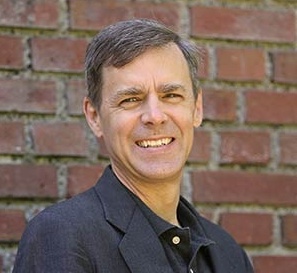
In the United States, the responsibility for conducting elections is assigned to states, and in most cases, administrative responsibility lies with 8,000 local officials in counties, municipalities, and townships. These “stewards of democracy” protect and defend the franchise, but have traditionally been overlooked by scholars of political science. In this talk, Professor Paul Gronke discusses the innovative research he has conducted over the past six years to better understand and support these officials. He will also describe an interdisciplinary research field— election sciences—that emerged in response to the 2000 election, his role in launching and promoting applied research in this field, and what election scientists will be looking at in the upcoming November election.
Paul Gronke is a Professor of Political Science at Reed College who studies American politics, specializing in convenience and early voting, election administration, public opinion, and elections. Additionally, Paul serves as Director of the Elections & Voting Information Center (EVIC), an election science research center that he founded two decades ago whose researchers are co-located at Reed College and Portland State University (PSU). He has published more than three dozen peer-reviewed articles, monographs, and reports on topics ranging from public opinion and trust in government, public opinion about government use of torture, congressional elections, early and no-excuse absentee voting, and automatic voter registration. Paul serves on the Advisory Board for the MIT Election Data Science Lab (MEDSL) and the National Vote at Home Institute‘s Circle of Advisors and was awarded a Andrew Carnegie Fellowship in 2020. He works to expand easier access to secure, cost-effective elections while improving voter turnout. Paul’s academic credentials–including his curriculum vita, courses taught, and other research papers–can be found at his personal Reed web page.
Professor Dan Qi, Political Science
Party, Campaign Messages, and Elections
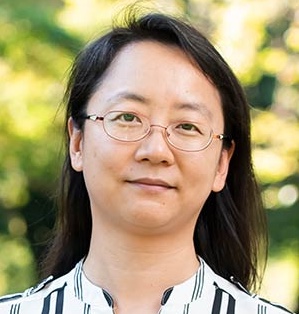
Dan Qi is a Visiting Assistant Professor of Political Science at Reed College. She got her Ph.D. in the Department of Political Science at Louisiana State University in August 2022. Her main research area is race-ethnicity and identity politics, especially in Asian American Politics and immigration. She also has ongoing research in gender politics, news media and government, political behavior, public opinion, and political economy. At the 2021 APSA conference, she presented a paper entitled “American Attitudes Towards Asians in the Trump Covid Era.” Her dissertation is “Nationalism, Perceptions of Immigrant Threat, and Attitudes Towards Immigrants in Developed Countries.”
Professor Vasiliy Safin ’07, Psychology
This is Not Propaganda: Psychology of Disinformation and Propaganda Campaigns
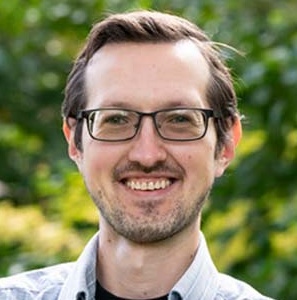
As billions of people participate in elections across the world in 2024, broadcast and digital media are a source of information and disinformation for every voter. In this interactive lecture, we will dive into how your cognition makes you vulnerable to disinformation campaigns and what can be done to inoculate ourselves and un-disinform others. The lecture will spotlight the incredible proliferation of Russian propaganda in the U.S., and the threats it poses to our democracy. Although there are no silver bullets, we'll work on research-informed strategies for reducing disinformation and polarization in political discourse. We will also have a bit of fun with some cognitive experiments!
Vasiliy Safin ’07 is a Visiting Assistant Professor of Psychology at Reed College, a cognitive scientist with training and research interests extending to behavioral economics and social psychology. His senior thesis at Reed explored questions of self-control and persistence of behavior. During his doctoral program he continued to study self-control, but the scope was broadened to decisions that affected others: altruism, social cooperation, social discounting, game theory, tragedy of the commons, etc. At Reed in the 2023-2024 academic year he has been working with students interested in exploring the judgment and decision-making processes that take place when we evaluate prosocial and antisocial choices. He has recently taken an interest in the psychological examination of propaganda, and is working with students on identifying and examining propaganda and/or disinformation social media campaigns (especially the massive harmful campaigns conducted by Russia) through the lens of cognitive and social psychology.
Alumni Presenters/Moderators
Rachel Armitage
Reedie Political Strategists Panel Discussion (Moderator)
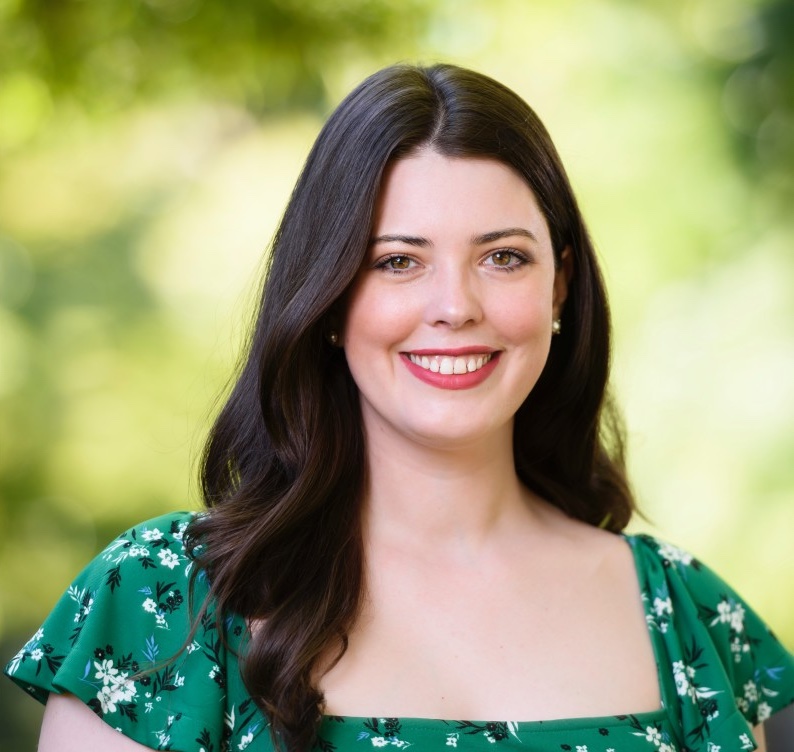
Rachel Armitage is an Associate Director of Alumni Relations & Volunteer Engagement at Reed College, and served as State Senator for Oregon State Senate District 16 from 2022-2023. Earlier in her career, Armitage worked on two targeted U.S. Senate races and served as a legislative assistant in the Oregon Legislature.
Armitage graduated from the University of Oregon in 2015 with a Bachelor of Arts degree in geography, and has enjoyed taking MALS classes at Reed. Armitage lives in Warren, Oregon with her husband and step-daughter.
Daniel Beveridge ’92, Religion
Impacts of AI on Elections and Political Discourse
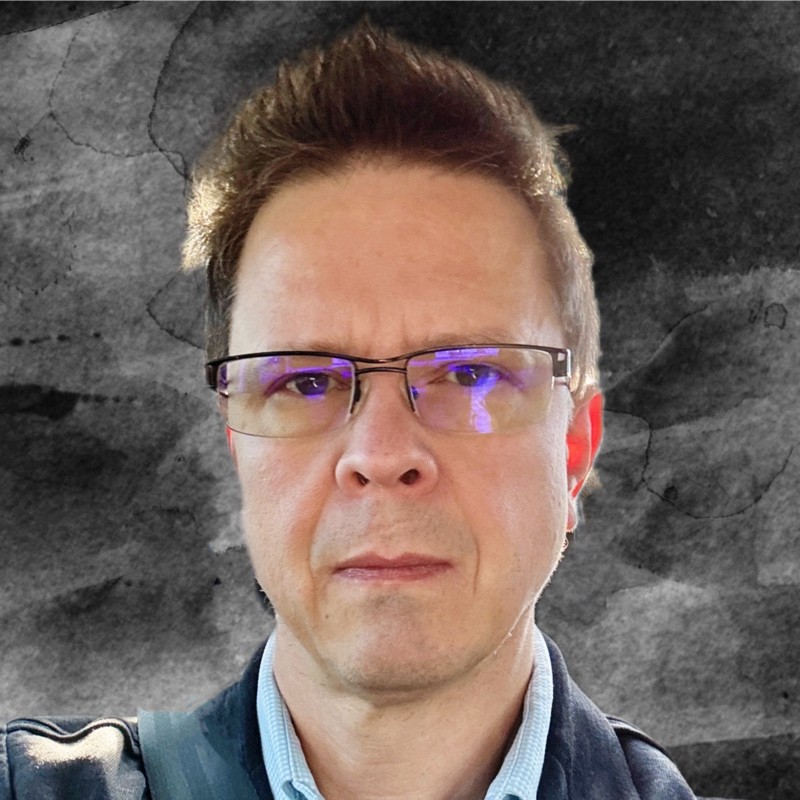 In this class we will explore developments in Artificial Intelligence over the past few years and examine how they are shaping the way various forms of media are being used to position messages, shape opinion, and undermine traditional election mechanisms. This class will help the audience understand the trajectory of AI technology along with its risks and opportunities. Participants will gain a better understanding of the near term challenges we’ll face and emerging solutions and strategies that will help to reign in the risks. We will have some hands-on demonstrations of AI to showcase how existing technology is already shifting the way that political operators engage with the public.
In this class we will explore developments in Artificial Intelligence over the past few years and examine how they are shaping the way various forms of media are being used to position messages, shape opinion, and undermine traditional election mechanisms. This class will help the audience understand the trajectory of AI technology along with its risks and opportunities. Participants will gain a better understanding of the near term challenges we’ll face and emerging solutions and strategies that will help to reign in the risks. We will have some hands-on demonstrations of AI to showcase how existing technology is already shifting the way that political operators engage with the public.
Daniel Beveridge ’92 is a Distinguished Engineer in VMware’s Research Group, focused on AI innovation and related technology driving disruptive innovation across key investment areas. He has developed a range of new technology over his 14 years at VMware (now part of Broadcom) and received over 50 patents on software design inventions related to software infrastructure. His insights draw from 30+ years in IT covering consulting, software architecture, and IT management.
Flavia Bortoleto ’17, History/Literature
Reedie Political Strategists Panel Discussion
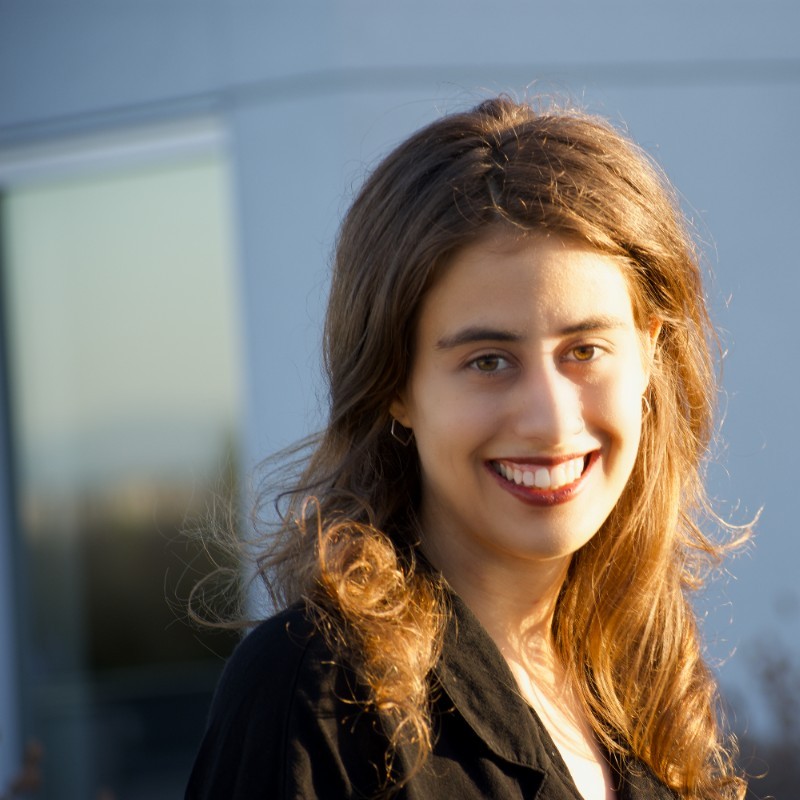 As the Head of Advertising Strategy for Winning Mark, Flavia Bortoleto ’17 splits her time between the digital ad tech world and client strategy. She loves the pace of the campaign world and is inspired by the brilliant people she gets to work with everyday. Prior to joining Winning Mark, Flavia worked at Adpearance – a full-suite digital marketing agency. Outside of work she enjoys spending time with her partner and their dog, Jersey – who is named after her home state.
As the Head of Advertising Strategy for Winning Mark, Flavia Bortoleto ’17 splits her time between the digital ad tech world and client strategy. She loves the pace of the campaign world and is inspired by the brilliant people she gets to work with everyday. Prior to joining Winning Mark, Flavia worked at Adpearance – a full-suite digital marketing agency. Outside of work she enjoys spending time with her partner and their dog, Jersey – who is named after her home state.
Susie Davis ’88, Art/English
Did Trump Break NPR?—Political Journalism Discussion (presenting virtually)
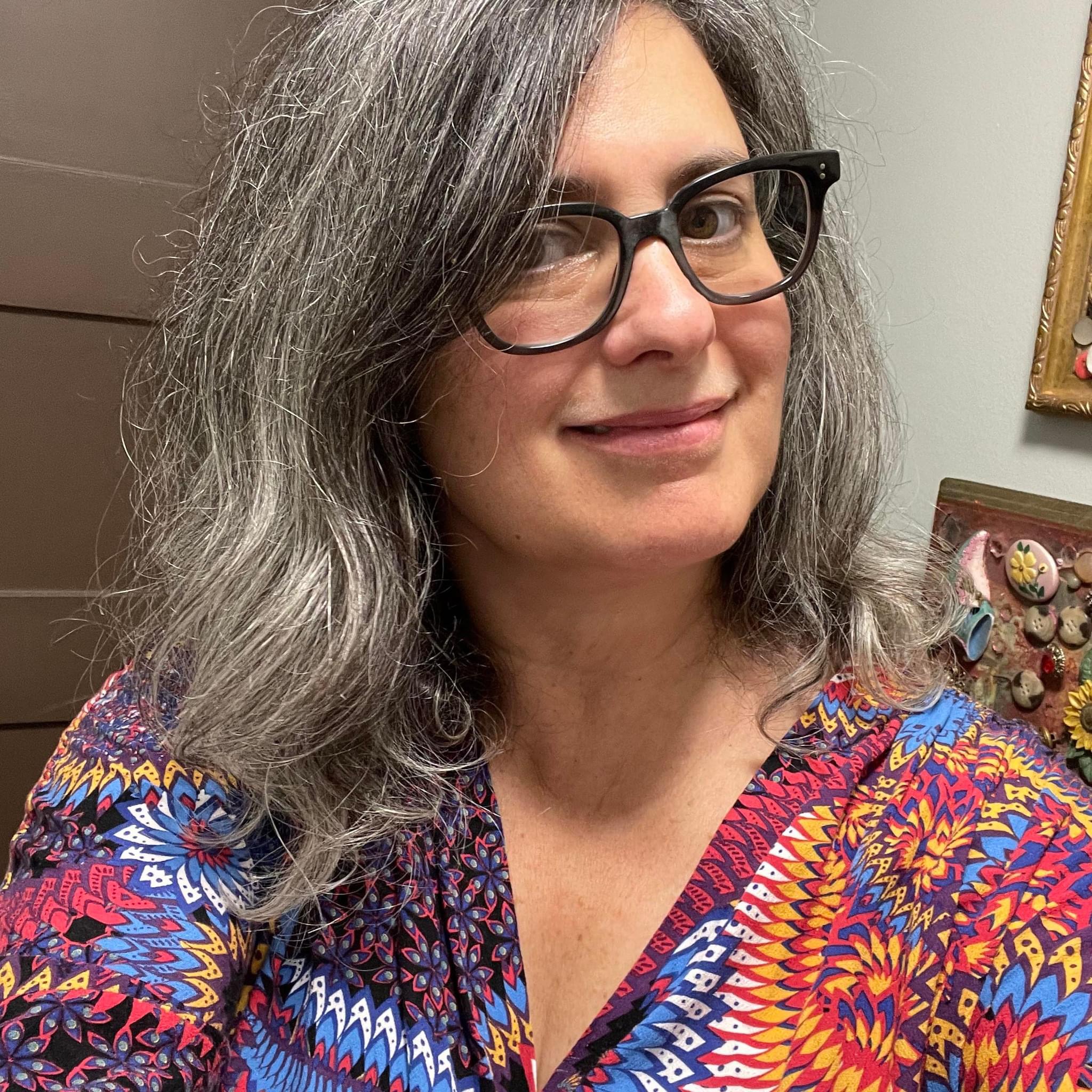 Susie Davis ’88 spent 30 years in public radio and podcasting, editing and producing for Marketplace and NPR (ask her about 9/11) and Senior Producing shows for North Carolina Public Radio, Minnesota Public Radio and KQED in San Francisco. In 2017 she was a cultural diplomat for the United States Department of State, teaching narrative storytelling and podcasting basics to journalists in 8 countries. She's the author of a collection of poems called Gathering Sound, the co-editor of an anthology about working mothers and a contributor to books about female beauty and blended families. She's been a columnist for the News & Observer Newspaper in Raleigh, NC, and a visiting professor at Duke, UNC Chapel Hill, NCCU (an HBCU in Durham, NC) and Wake Forest University. Ms. Davis was born and raised in the city of Detroit, graduated from Reed in 1988, and got her MFA in Poetry from the Writing Programs at the University of Houston in 1995. Currently she is the Advisor/Director to WASU FM, the student-run radio station at Appalachian State University in Boone, North Carolina. She lives in the woods with a rescue mutt named Willow and spends her free time hiking with her son near Asheville where he goes to school or Facetiming with her daughter in New York City.
Susie Davis ’88 spent 30 years in public radio and podcasting, editing and producing for Marketplace and NPR (ask her about 9/11) and Senior Producing shows for North Carolina Public Radio, Minnesota Public Radio and KQED in San Francisco. In 2017 she was a cultural diplomat for the United States Department of State, teaching narrative storytelling and podcasting basics to journalists in 8 countries. She's the author of a collection of poems called Gathering Sound, the co-editor of an anthology about working mothers and a contributor to books about female beauty and blended families. She's been a columnist for the News & Observer Newspaper in Raleigh, NC, and a visiting professor at Duke, UNC Chapel Hill, NCCU (an HBCU in Durham, NC) and Wake Forest University. Ms. Davis was born and raised in the city of Detroit, graduated from Reed in 1988, and got her MFA in Poetry from the Writing Programs at the University of Houston in 1995. Currently she is the Advisor/Director to WASU FM, the student-run radio station at Appalachian State University in Boone, North Carolina. She lives in the woods with a rescue mutt named Willow and spends her free time hiking with her son near Asheville where he goes to school or Facetiming with her daughter in New York City.
Francisca Garfia ’17, Anthropology
Portland Votes 2024: Shifting to Ranked-Choice Voting
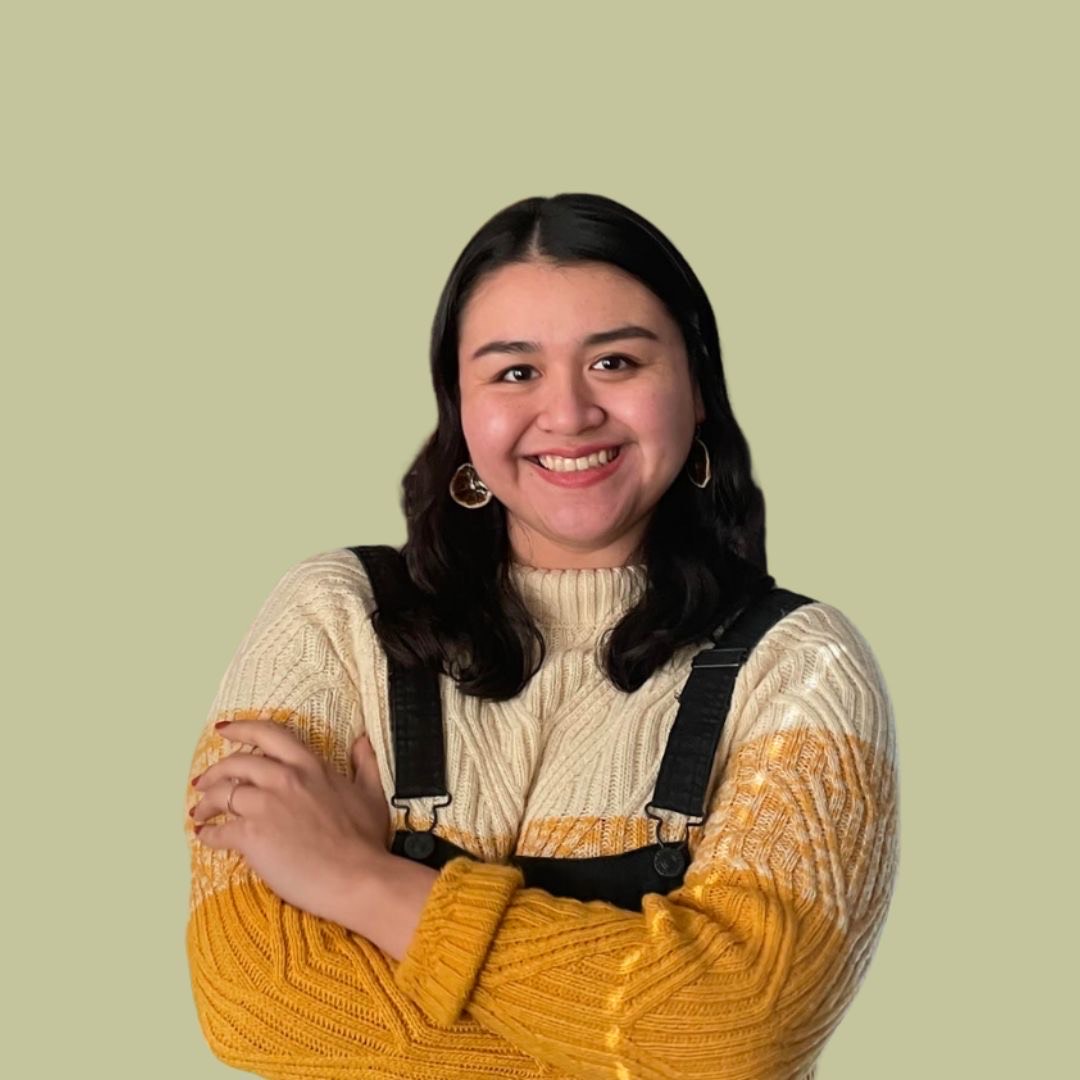
Get ready to rank your vote, Portland! This November will be the first time Portlanders vote in their districts and use ranked-choice voting to elect three council representatives, a mayor, and an auditor. Learn more about how single winner and multiple winner ranked-choice voting works and how the City of Portland is preparing for this change.
Francisca Garfia ’17 started her career with the City of Portland, supporting the Portland Building Reconstruction project and other citywide initiatives in the Office of Management and Finance. She then led communications efforts on the Oregon Worker Relief Fund and other immigrants’ rights measures before moving to Family Forward. At Family Forward, she supported measures and bilingual campaigns that centered mothers, parents, and caregivers.
After Portlanders approved Measure 26-228, which changed the City of Portland’s form of government, directed the City to establish voting districts, and implement ranked-choice voting, she returned to the City as part of the transition team. She creates and translates communications and engagement materials to ensure Portlanders can understand the upcoming changes and are prepared to cast their ballots on Nov. 5, 2024.
Councilor Yi-Kang Hu ’95, Biochemistry & Molecular Biology
Reedies in Elected Office Panel Discussion
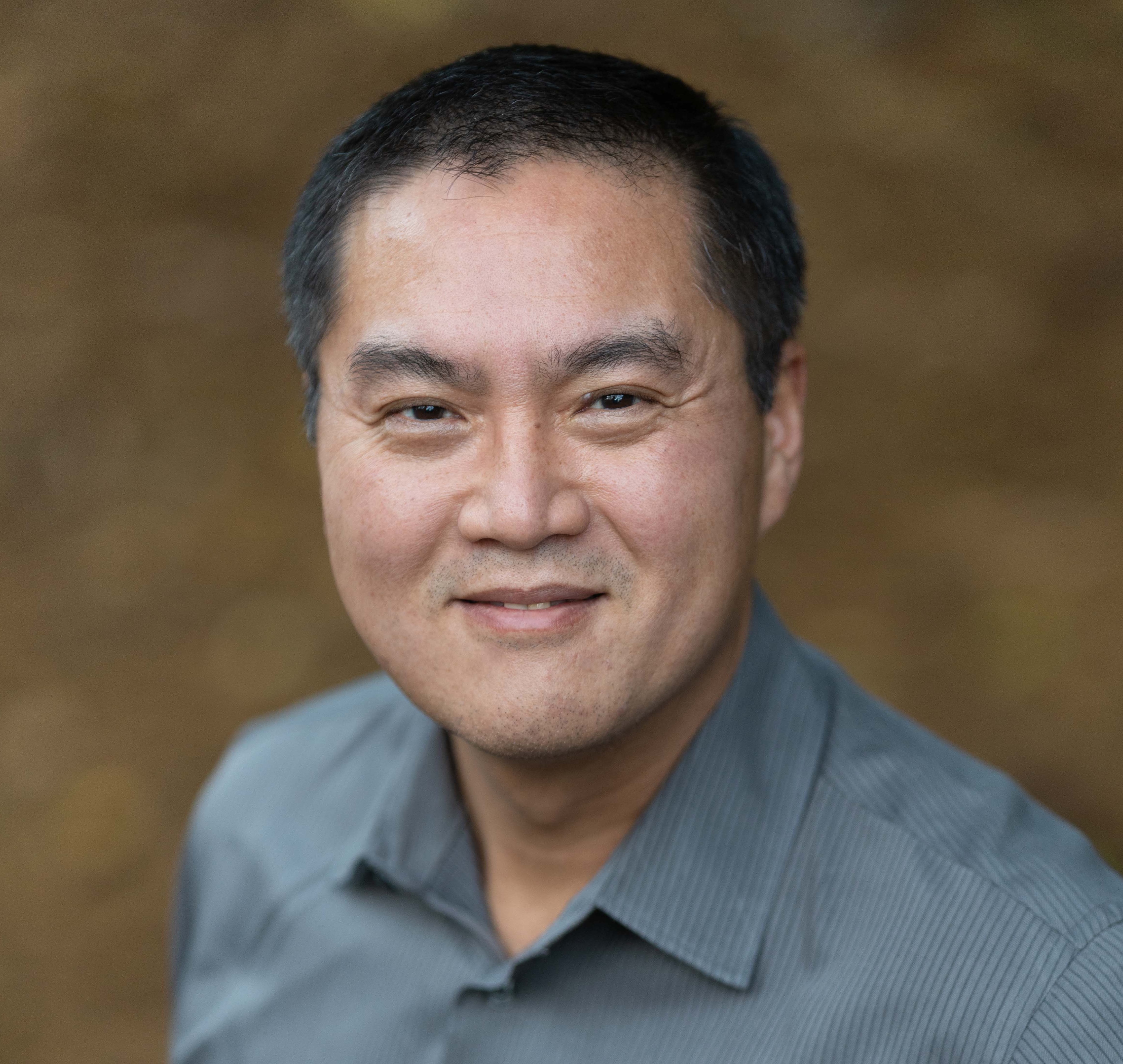
Yi-Kang Hu ’95 currently serves as the Council President of the City of Tigard, Oregon, home to approximately 56,000 residents. In addition to his role in city governance, Yi is a food & drug lawyer whose practice focuses on FDA law and regulation. Before his election to the Tigard City Council in 2022, Yi volunteered with various organizations, including serving two terms each on the Oregon Board of Naturopathic Medicine and the Tigard Planning Commission.
Yi pursued his undergraduate studies in Biochemistry and Molecular Biology at Reed before earning a Ph.D. in the same discipline from Oregon Health & Science University and a law degree from Lewis & Clark Law School.
Originally from Taiwan, Yi grew up in Hawaii before moving to Oregon to study at Reed. His appreciation for the natural beauty of the Pacific Northwest developed from his field trips with Prof. Bert Brehm [biology 1962-93] and classmates of the Plant Community course (equivalent to the Leaves to Landscapes course). To this day, Yi enjoys exploring the mountains and coasts of Oregon with his husband Abram and German Shepherd mix dog Sandy whenever possible.
David Hyde ’88, History
Did Trump Break NPR?—Political Journalism Discussion (presenting virtually)
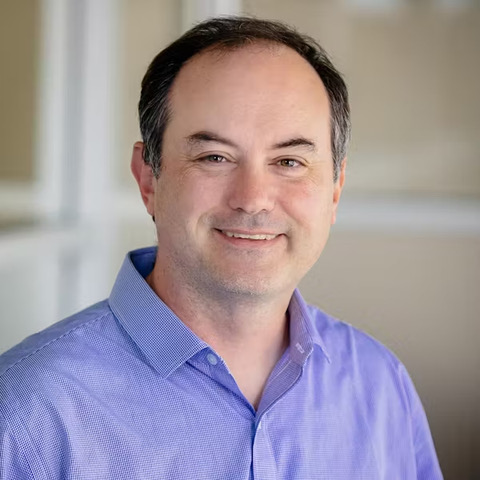 David Hyde ’88 created and hosts the Seattle Nice podcast, which aims to bridge the political divides within one blue city. Each podcast brings the progressive left together with the center and center left to debate the thorniest issues in Seattle politics. For nearly two decades, David worked for NPR-affiliate KUOW in Seattle, most recently as a Murrow-award winning politics reporter. He departed in April of this year to dedicate himself full time to podcasting. Previously, David hosted talk show interviews and also worked as a supervising talk show producer. David's education includes a BA in History from Reed College, and reaching the PhD ABD stage in U.S. History at Rutgers University before dropping out.
David Hyde ’88 created and hosts the Seattle Nice podcast, which aims to bridge the political divides within one blue city. Each podcast brings the progressive left together with the center and center left to debate the thorniest issues in Seattle politics. For nearly two decades, David worked for NPR-affiliate KUOW in Seattle, most recently as a Murrow-award winning politics reporter. He departed in April of this year to dedicate himself full time to podcasting. Previously, David hosted talk show interviews and also worked as a supervising talk show producer. David's education includes a BA in History from Reed College, and reaching the PhD ABD stage in U.S. History at Rutgers University before dropping out.
Sandeep Kaushik ’89, History
Reedie Political Strategists Panel Discussion and Did Trump Break NPR?—Political Journalism Discussion (moderator)
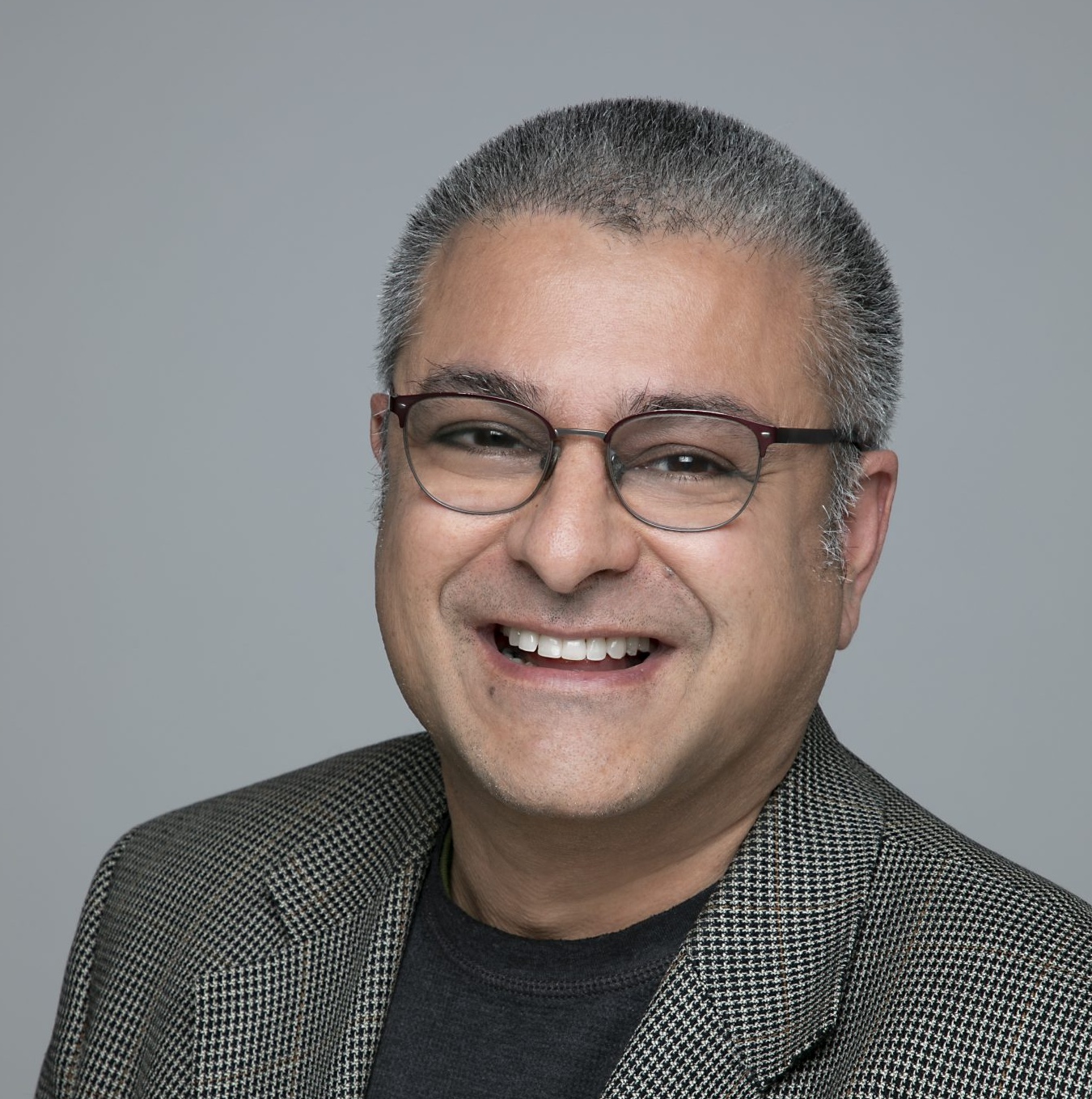
Sandeep Kaushik ’89 has broad experience in political and public affairs consulting work in Seattle at Sound View Strategies. In addition to his extensive public relations, political communications and strategic advisory work for elected officials and civic leaders, governments and nonprofits, he has worked on multiple political campaigns in the Northwest, including numerous issue and ballot measure campaigns. Sandeep’s current practice includes dealing with complicated, high profile policy issues in Seattle, including affordable housing, issues around ridesharing services, short-term rental regulation, transit funding and universal pre-K.
Sandeep consulted on the successful campaigns of the last two elected mayors of Seattle, and on the independent expenditure campaign that helped to elect the current mayor. Previously, he handled the communications and messaging for Dow Constantine’s victorious campaign to become King County Executive in 2009, for the successful effort to defeat two liquor privatization initiatives on the 2010 Washington State ballot, and the decisive victory to over well-funded casino interests that sought to win voter approval for a private casino just outside Portland, OR in 2012. In addition, he managed numerous city levy campaigns, including the Metropolitan Parks District campaign, the Preschool Pilot campaign, the Move Seattle campaign, the Housing Levy campaign and the Seattle Bus Service Expansion initiative.
Between 2005 and April 2007, Sandeep worked as deputy communications director for then-King County Executive Ron Sims, and prior to that he worked as a political columnist/writer for Seattle’s influential alt-weekly, the Stranger, and as the Seattle correspondent for Time Magazine and the Boston Globe. He has a B.A. in history from Reed College and an M.A. in history from Princeton University. He currently serves on the executive committee of the Downtown Emergency Services Center (DESC) board of directors. He lives in Seattle’s Phinney Ridge neighborhood with his wife and two children.
Jim Labbe ’95, History
Participatory Budgeting
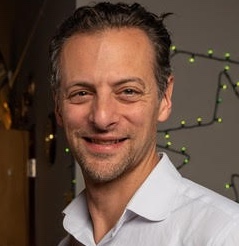 Jim Labbe ’95 (he/him) currently serves as a Director and Board President with Participatory Budgeting Oregon. Jim was born and grew up in Portland, Oregon where he developed a life-long passion for activating municipal and regional democracy for people and the planet. He got his start serving on the Multnomah Youth Commission in 1985. After graduating from Reed, he has worked for the Applegate Partnership, Audubon Society of Portland, and Depave doing community-based organizing and advocacy around natural resource conservation. In 2018 he co-founded Participatory Budgeting Oregon which works for more participatory and just public budgeting for all Oregonians by centering the expertise and leadership of underrepresented communities. Jim also has research interests and publications that span history, regional equity, urban forestry, and watershed science and management. Jim currently lives in North Portland with his life partner and daughter.
Jim Labbe ’95 (he/him) currently serves as a Director and Board President with Participatory Budgeting Oregon. Jim was born and grew up in Portland, Oregon where he developed a life-long passion for activating municipal and regional democracy for people and the planet. He got his start serving on the Multnomah Youth Commission in 1985. After graduating from Reed, he has worked for the Applegate Partnership, Audubon Society of Portland, and Depave doing community-based organizing and advocacy around natural resource conservation. In 2018 he co-founded Participatory Budgeting Oregon which works for more participatory and just public budgeting for all Oregonians by centering the expertise and leadership of underrepresented communities. Jim also has research interests and publications that span history, regional equity, urban forestry, and watershed science and management. Jim currently lives in North Portland with his life partner and daughter.
Councilor Christine Lewis ’07, Anthropology
Housing Policy on the Ballot and Reedies in Elected Office Panel Discussion
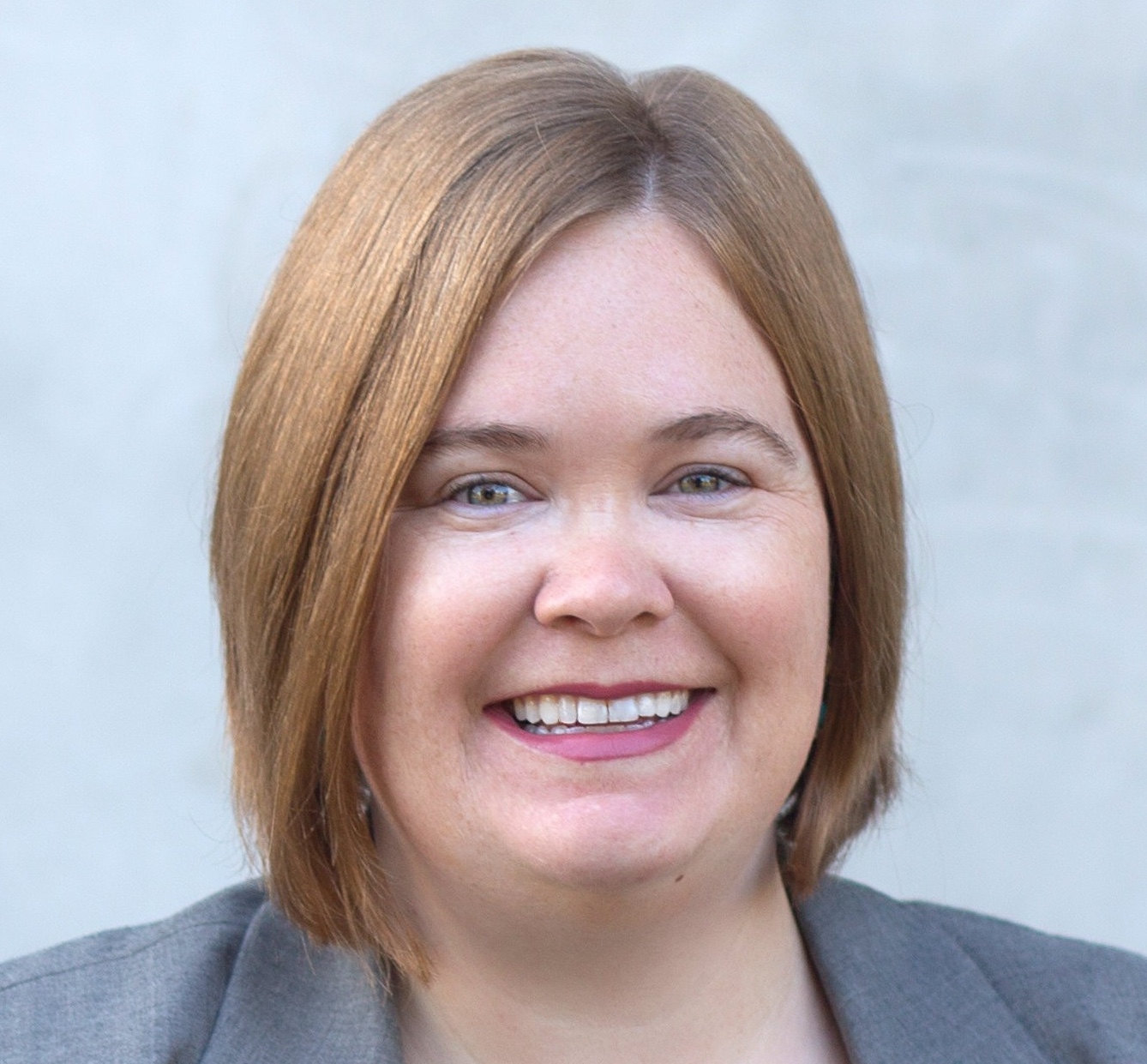
Christine Lewis ’07 (she/her/hers) represents the communities of District 2 on Metro Council, including Oregon City, Gladstone, Milwaukie, Happy Valley, West Linn, Lake Oswego, Rivergrove, Johnson City, Southwest Portland, and unincorporated Clackamas and Multnomah Counties. Currently in her second term, her responsibilities and committee assignments span from housing and transportation to parks and nature, solid waste, and regional cultural venues.
Sean Long ’12, Philosophy
Don't Let the Nazis In! - White Extremist Entryism in U.S. Politics
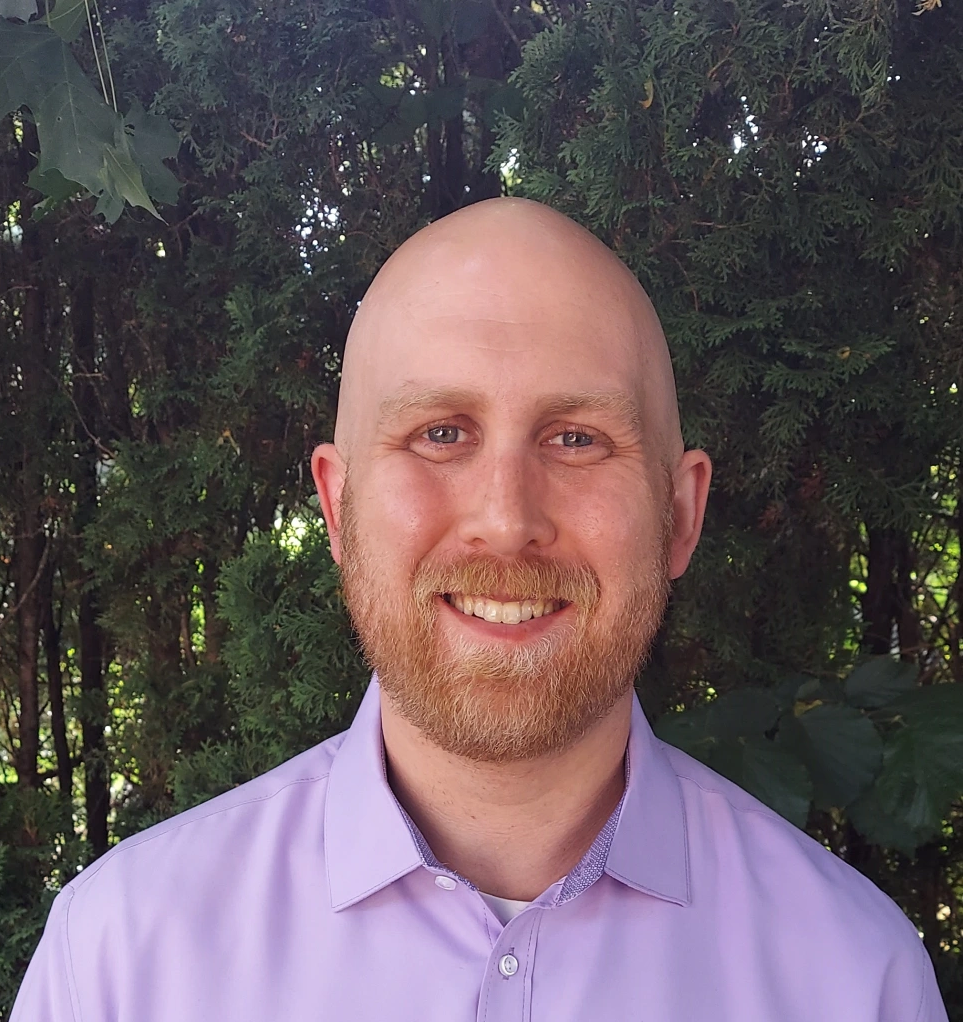 This class focuses on the ways in which White extremists, including neo-Nazis, continue to influence mainstream political discourse. Namely, this revolves around their efforts to co-opt popular conversations, leveraging concerns over Palestine, Ukraine, and domestic racial politics to spread their agenda and expand their support. We will discuss ways to identify these efforts, as well as develop an understanding of the genocidal underpinnings that are intertwined with these extremist movements.
This class focuses on the ways in which White extremists, including neo-Nazis, continue to influence mainstream political discourse. Namely, this revolves around their efforts to co-opt popular conversations, leveraging concerns over Palestine, Ukraine, and domestic racial politics to spread their agenda and expand their support. We will discuss ways to identify these efforts, as well as develop an understanding of the genocidal underpinnings that are intertwined with these extremist movements.
Sean Long ’12 is a Postdoctoral Associate at George Washington University. His research explores the relationship between White extremist activity and broader dynamics with American politics, involving a great deal of experience reading extremist content and directly interacting anonymously with extremists. He received his PhD in Political Science from the University of California, Riverside, as well as an MA in American Government from Georgetown University and a BA in Philosophy from Reed College. While at Reed he focused on studying Ludwig Wittgenstein and theories of mysticism, which he greatly prefers to the study of White extremists.
Commissioner Mingus Mapps ’90, Political Science
Reedies in Elected Office Panel Discussion
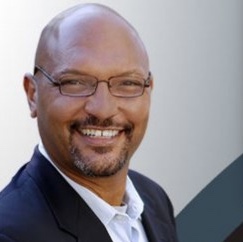
Born and raised in the Bay Area with summers spent in Portland, Commissioner Mingus Mapps developed a deep connection to the Pacific Northwest's natural beauty and vibrant culture. He graduated with a BA in Political Science from Reed College, and a PhD in Government from Cornell University. He taught Political Science at Brandeis University, Bowdoin College, and Portland State University. Mentored by civic leaders like Beverly Stein, he honed his commitment to public service and advocacy. Witnessing Portland's transformation from a timber town to a thriving tech hub, he recognized the imperative for inclusive policies to address systemic inequities.
Driven by a passion for community and justice, and as a father of two boys, he embarked on a political career, seeking to amplify the voices of all Portlanders while providing a hopeful future for his children. Commissioner Mapps took office in January of 2021. He is the Commissioner in charge of the Public Works Service Area: The Bureau of Environmental Services, the Portland Bureau of Transportation, and the Water Bureau. As a City Commissioner, he is dedicated to responsive and evidence-based governance, prioritizing economic recovery, reimagining public safety, and addressing housing insecurity. Over the past 3.5 years he has worked to expand support for the houseless, increase affordable housing options, and advance environmental protection initiatives, ensuring a more equitable and sustainable future for all residents of Portland.
Peter Miller ’06, Political Science
A Field Guide to Spotting a Gerrymander
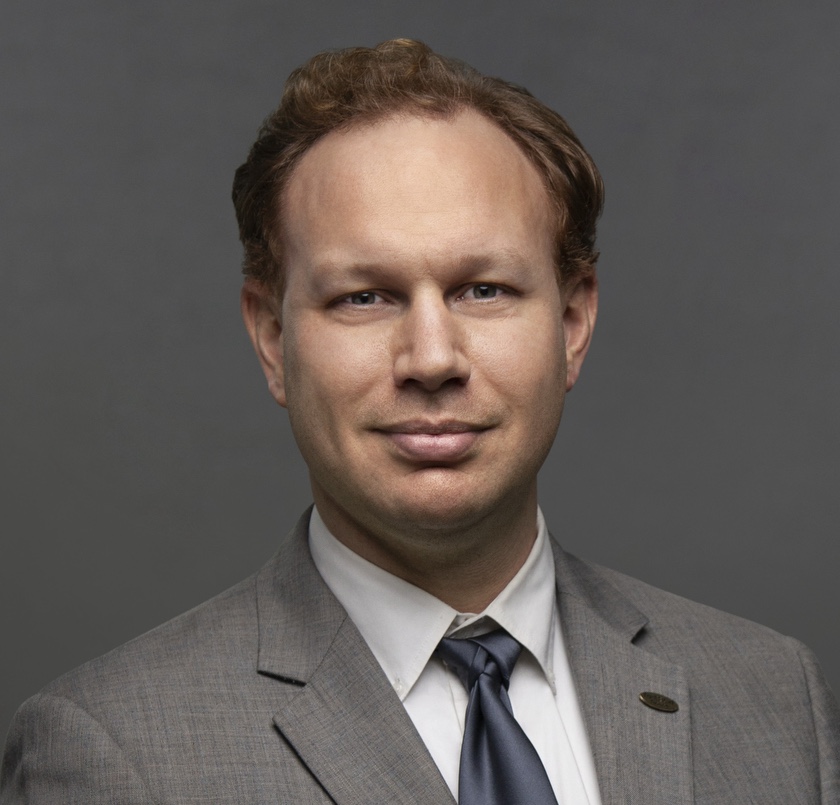 This class will discuss social scientific methods to identify partisan and racial gerrymandered district plans in Ohio and Alabama. We will also explore what can be done to replace gerrymandered maps with ones that allow for the free exercise of the vote in these states.
This class will discuss social scientific methods to identify partisan and racial gerrymandered district plans in Ohio and Alabama. We will also explore what can be done to replace gerrymandered maps with ones that allow for the free exercise of the vote in these states.
Peter Miller ’06 is a Senior Research Fellow at the Brennan Center for Justice at New York University focusing on redistricting, voting, and elections. His research interests include U.S. and comparative politics, voting behavior, political institutions, and public opinion. One of Miller’s articles on redistricting commissions was cited by the U.S. Supreme Court in Arizona State Legislature v. Arizona Independent Redistricting Commission. He is a frequent commentator on topics related to redistricting reform, voting rights, and elections.
Miller was a Fulbright Scholar at the University of Tampere, in Finland, during the 2016–17 academic year. He was previously a Podlich Fellow at the Center for the Study of Democracy at UC Irvine and a Templeton Foundation Fellow in the Philosophy, Politics, and Economics Program at the University of Pennsylvania. He holds a doctorate and a master’s degree in political science from the University of California, Irvine, and a bachelor’s degree in political science from Reed College.
Dylan Rivera ’95, Political Science
Opening and Closing Remarks
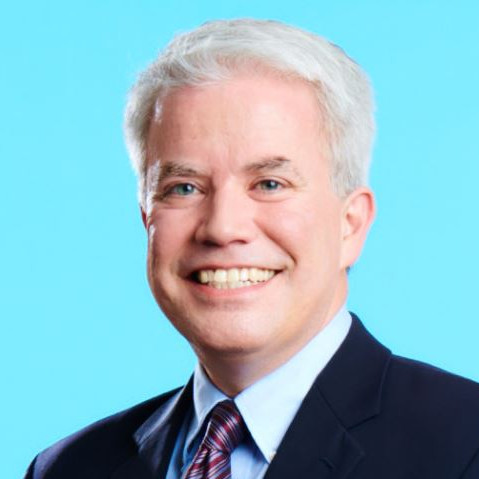 Dylan Rivera ’95 is the Public Information Officer for the Portland Bureau of Transportation, the arm of city government that plans, builds and maintains $8 billion in streets, bridges, streetcars, bike lanes and sidewalks across the city. A native of Austin, Texas, he edited the high school newspaper before coming to Reed in fall of 1991.
Dylan Rivera ’95 is the Public Information Officer for the Portland Bureau of Transportation, the arm of city government that plans, builds and maintains $8 billion in streets, bridges, streetcars, bike lanes and sidewalks across the city. A native of Austin, Texas, he edited the high school newspaper before coming to Reed in fall of 1991.
As a student, he edited The Quest for three semesters, became the first-ever chair of the Gray Fund Committee and served as House Advisor of the Spanish House. He turned the outreach and writing skills he honed at Reed into a career in journalism. In 14 years as a newspaper reporter in Austin, Texas and Portland, Oregon, he chased a killer tornado, worked on a team project that was nominated for a Pulitzer Prize and investigated a $4 billion proposal to build a new Columbia River bridge. Since 2013, Dylan regularly serves as the face of the City of Portland, meeting local TV reporters on an hour’s notice for on-camera interviews covering a wide range of topics from potholes and fatal crashes to federal funding and long-range plans. In recent years, he has led workshops on crisis communications and media relations. His live interview naming a February 2023 storm a “surprise snow storm” prompted a mea culpa from the National Weather Service, improved local-federal coordination and led to widespread media use of the phrase.
Dylan served as Reed College Alumni Trustee from 2015 to 2020, leading communication strategy for the most recent Presidential Search Committee and serving on the Board of Trustees and Alumni Board. He is the Alumni Board president in 2023–2024. He regularly advises Reed students and alumni on how to enter careers in communications and government, hosts summer interns, and passionately supports alumni engagement and alumni financial support for the college to benefit financial aid and a diverse student body. He and his wife Ramona K. Perrault named their high-school aged son Eliot after an early leader of the College.
Diane Rosenbaum ’71
Reedies in Elected Office Panel Discussion
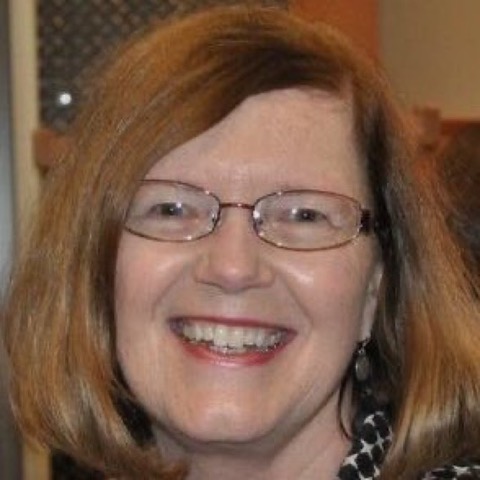
Diane Rosenbaum ’71 served in the Oregon legislature from 1999 to 2017, representing Southeast Portland & Milwaukie, a progressive district that includes Reed College. She held numerous leadership positions, including Senate Majority Leader, House & Senate Speaker Pro Tempore, & House Democratic Whip. She also served as an Interim Multnomah County Commissioner in 2023.
Rosenbaum is past Chair of the Oregon Commission for Women & Oregon WINPAC, Vice-Chair of the Oregon Hunger Task Force, & President of the AFL-CIO’s National Labor Caucus of State Legislators. She has served on numerous non-profit boards, including as Chair of the Oregon Humane Society & United Way. Rosenbaum’s work has been honored with the Reed College Distinguished Service Award, Planned Parenthood’s Pro-Choice Champion, & the Wayne Morse Award for Integrity & Passion.
She lives in Southeast Portland’s Richmond neighborhood with her husband Jas Adams ’71, their cairn terrier SeaBiscuit, and rescue cat Tosca.
Igor Vamos ’90, Art
Premiere of New Yes Men Documentary and Barbie Liberation Organization Short Films (presenting virtually)
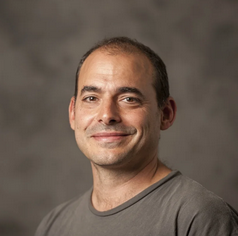 Igor Vamos ’90 is a media artist and Professor and Graduate Program Director at Rensselaer Polytechnic Institute (RPI). While at Reed, Vamos organized a student group called Guerrilla Theater of the Absurd, which performed and documented "culture jamming" acts of protest. Vamos is also known as “Mike Bonanno,” in his work with The Yes Men, the performance-activist duo that impersonates captains of industry and surprise unsuspecting business audiences with satirical, poignant actions that comment upon pressing social and environmental issues.
Igor Vamos ’90 is a media artist and Professor and Graduate Program Director at Rensselaer Polytechnic Institute (RPI). While at Reed, Vamos organized a student group called Guerrilla Theater of the Absurd, which performed and documented "culture jamming" acts of protest. Vamos is also known as “Mike Bonanno,” in his work with The Yes Men, the performance-activist duo that impersonates captains of industry and surprise unsuspecting business audiences with satirical, poignant actions that comment upon pressing social and environmental issues.
The Yes Men Fix The World was an official selection of the 2009 Sundance Film Festival and won the Panorama Audience Award at the 2009 Berlin International Film Festival. The movie, which chronicled the hijinks of the Yes Men, earned praise from national and international press and was hailed as “fiendishly amusing” by the Washington Post, while the New York Times said, "It takes some nerve, not to mention diabolical intelligence... to pull off the elaborate pranks devised by the Yes Men." Vamos is also well-known for his collaborative public art projects such as the Barbie Liberation Organization and the Center For Land Use Interpretation, a non-profit organization dedicated to the increase and dissemination of knowledge about the nature of human interaction with the Earth.
Mark Wiener ’78
Reedie Political Strategists Panel Discussion
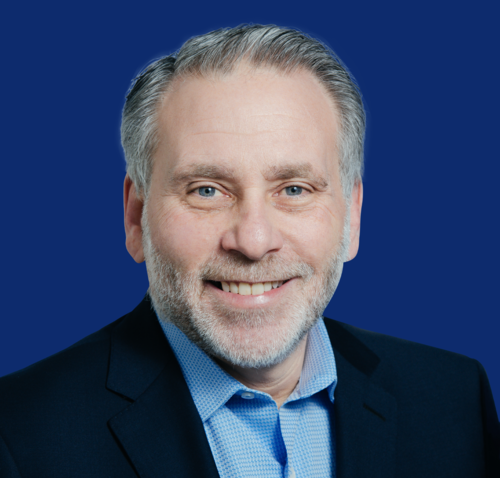 Mark Wiener ’78 (he/him/his) is the Co-Founder and Chief Strategist at Winning Mark. Starting with his political career working for then first-term Congressman Chuck Schumer, Mark has 40 years of experience at every level of government, politics and advocacy. He has shaped strategy, stories, messaging and materials for elected officials, government agencies, unions, advocacy organizations, businesses and hundreds of campaigns here and abroad, winning “firsts” like historic criminal justice reforms, the first statewide defense of sanctuary laws that protect immigrants, or helping the first woman to run for the presidency of Belarus.
Mark Wiener ’78 (he/him/his) is the Co-Founder and Chief Strategist at Winning Mark. Starting with his political career working for then first-term Congressman Chuck Schumer, Mark has 40 years of experience at every level of government, politics and advocacy. He has shaped strategy, stories, messaging and materials for elected officials, government agencies, unions, advocacy organizations, businesses and hundreds of campaigns here and abroad, winning “firsts” like historic criminal justice reforms, the first statewide defense of sanctuary laws that protect immigrants, or helping the first woman to run for the presidency of Belarus.
Recordings
Check out a recording of the Alumni College 2023 Reed Career Alliance Career Pathways Panel—Working as a Creative: How a Reed education did/didn’t prepare us for working as an entrepreneur from June 8, 2023, featuring alea adigweme ’06, Mariza Aparicio-Tovar ’09, Jessica Gerhardt ’11, Van Havig ’99, and Dawn Seymour ’80, moderated by Govind Nair ’83.
You can also watch video recordings from Alumni College 2021 Warming Signs—Emergency, Adaptation, and Innovation.
Questions? Please reach out to Alumni Programs, alumni@reed.edu, 503/777-7589




 In this class we will explore developments in Artificial Intelligence over the past few years and examine how they are shaping the way various forms of media are being used to position messages, shape opinion, and undermine traditional election mechanisms. This class will help the audience understand the trajectory of AI technology along with its risks and opportunities. Participants will gain a better understanding of the near term challenges we’ll face and emerging solutions and strategies that will help to reign in the risks. We will have some hands-on demonstrations of AI to showcase how existing technology is already shifting the way that political operators engage with the public.
In this class we will explore developments in Artificial Intelligence over the past few years and examine how they are shaping the way various forms of media are being used to position messages, shape opinion, and undermine traditional election mechanisms. This class will help the audience understand the trajectory of AI technology along with its risks and opportunities. Participants will gain a better understanding of the near term challenges we’ll face and emerging solutions and strategies that will help to reign in the risks. We will have some hands-on demonstrations of AI to showcase how existing technology is already shifting the way that political operators engage with the public. As the
As the 

 David Hyde ’88 created and hosts the Seattle Nice podcast, which aims to bridge the political divides within one blue city. Each podcast brings the progressive left together with the center and center left to debate the thorniest issues in Seattle politics. For nearly two decades, David worked for NPR-affiliate KUOW in Seattle, most recently as a Murrow-award winning politics reporter. He departed in April of this year to dedicate himself full time to podcasting. Previously, David hosted talk show interviews and also worked as a supervising talk show producer. David's education includes a BA in History from Reed College, and reaching the PhD ABD stage in U.S. History at Rutgers University before dropping out.
David Hyde ’88 created and hosts the Seattle Nice podcast, which aims to bridge the political divides within one blue city. Each podcast brings the progressive left together with the center and center left to debate the thorniest issues in Seattle politics. For nearly two decades, David worked for NPR-affiliate KUOW in Seattle, most recently as a Murrow-award winning politics reporter. He departed in April of this year to dedicate himself full time to podcasting. Previously, David hosted talk show interviews and also worked as a supervising talk show producer. David's education includes a BA in History from Reed College, and reaching the PhD ABD stage in U.S. History at Rutgers University before dropping out.
 Jim Labbe ’95 (he/him) currently serves as a Director and Board President with
Jim Labbe ’95 (he/him) currently serves as a Director and Board President with
 This class focuses on the ways in which White extremists, including neo-Nazis, continue to influence mainstream political discourse. Namely, this revolves around their efforts to co-opt popular conversations, leveraging concerns over Palestine, Ukraine, and domestic racial politics to spread their agenda and expand their support. We will discuss ways to identify these efforts, as well as develop an understanding of the genocidal underpinnings that are intertwined with these extremist movements.
This class focuses on the ways in which White extremists, including neo-Nazis, continue to influence mainstream political discourse. Namely, this revolves around their efforts to co-opt popular conversations, leveraging concerns over Palestine, Ukraine, and domestic racial politics to spread their agenda and expand their support. We will discuss ways to identify these efforts, as well as develop an understanding of the genocidal underpinnings that are intertwined with these extremist movements.
 This class will discuss social scientific methods to identify partisan and racial gerrymandered district plans in Ohio and Alabama. We will also explore what can be done to replace gerrymandered maps with ones that allow for the free exercise of the vote in these states.
This class will discuss social scientific methods to identify partisan and racial gerrymandered district plans in Ohio and Alabama. We will also explore what can be done to replace gerrymandered maps with ones that allow for the free exercise of the vote in these states. Dylan Rivera ’95 is the Public Information Officer for the Portland Bureau of Transportation, the arm of city government that plans, builds and maintains $8 billion in streets, bridges, streetcars, bike lanes and sidewalks across the city. A native of Austin, Texas, he edited the high school newspaper before coming to Reed in fall of 1991.
Dylan Rivera ’95 is the Public Information Officer for the Portland Bureau of Transportation, the arm of city government that plans, builds and maintains $8 billion in streets, bridges, streetcars, bike lanes and sidewalks across the city. A native of Austin, Texas, he edited the high school newspaper before coming to Reed in fall of 1991.
 Igor Vamos ’90 is a media artist and
Igor Vamos ’90 is a media artist and  Mark Wiener ’78 (he/him/his) is the
Mark Wiener ’78 (he/him/his) is the